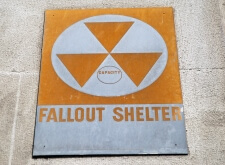 As Japan prepares to announce a reconnection of their nuclear plants to the country’s grid network the cost of post operation cleaning of the UK’s nuclear generation fleet has increased by £6bn from a £63.8bn estimate in 2011-12 to £69.8bn in 2012-13, with future increases expected to arise.
As Japan prepares to announce a reconnection of their nuclear plants to the country’s grid network the cost of post operation cleaning of the UK’s nuclear generation fleet has increased by £6bn from a £63.8bn estimate in 2011-12 to £69.8bn in 2012-13, with future increases expected to arise.
The cost for decommissioning covers activities to render previously active nuclear sites safe over the course of the next century with the increases blamed on the finding that Sellafield in Cumbria is proving to be “one of the world’s most hazardous and fiendishly complicated decontamination sites” with more than 1,000 buildings requiring demolition and decommissioning.
The problems have also been linked to the failure of the Government 12 months ago to prevent the Nuclear Decommissioning Authority (NDA) from awarding a five-year contract extension to Nuclear Management Partners (NMP) for the management Sellafield.
It had been expected that the controversial NMP business would be stripped of the lucrative contract.
Against a backdrop of accusations of “chronic mismanagement” causing delays and budget overruns the award was a surprise.
The National Audit Office had reported in 2012 that there existed “historic neglect” in preparations for the decommissioning of Sellafield within which NMP was culpable.
The situation had reached such a point that NDA Chief Executive John Clarke sent a series of letters to NMP in 2012/13 demanding “improved performance in a number of key areas, including schedule delivery”.
However all this appeared to be forgotten come contract renewal time only for cost over-runs to swiftly follow.
The NDA defended the cost rises by saying:
“This figure is the long-term financial position for well over a century, it’s not like the immediate costs have gone up. As we examine more and more of Sellafield, we find more and more work to do.”
Dr David Lowry, an independent nuclear research consultant, said that whilst it was “probably true” that new issues had arisen and would continue to do so as decommissioning progressed there was also clear signs that NMP’s management was “probably incompetent”.
In an all too familiar refrain, Dr Lowry added:
“That’s the thing with nuclear, the price always goes up.”
DECC defended their position saying:
“This Government is committed to safely dealing with the UK’s nuclear legacy. These cost rises are for the estimated decommissioning spend over the next 120 years and are a result of the considerable uncertainty and complexity that is to be expected in this type of project.”
In the meantime Japan’s nuclear watchdog gave the go ahead for two of their stricken reactors to restart following the Fukushima disaster in March 2011.
The Nuclear Regulatory Authority (NRA) has deemed that two reactors at the Kyushu Electric Power Sendai plant in southern Japan are ready and able to be returned to frontline operation having endorsed the sites after issuing a detailed safety report and following a period of public consultation.
Further hurdles remain ahead as Sendai requires approval on wider site facilities and needs to ensure that the wider community of the south-western Kagoshima prefecture accept the reconnection.
Recognising the widespread doubts about nuclear energy in a previously pro-atomic state, Industry minister Yuko Obuchi said:
“If people say they are worried, I think it is only natural. If you are a mother, I think it is a kind of feeling that everyone has.
“The central government must offer a full explanation to these sentiments.”
The culture of grants, subsidies and support as well as employment for communities around the plants is now being increasingly countered by hostility from those more distant who do not directly benefit from such support but whom are equally exposed should another incident like Fukushima occur.
This balancing act is critical, not only for the future of nuclear power in Japan, but also its continued adoption worldwide.
If one of the traditionally major proponents and beneficiaries of nuclear power turns its back on what was once seen as the miracle of energy generation, the impact would fall very badly on already sceptical European regimes.
Indeed in the event that Japan fails to secure an actual restart of its reactors they will continue to make demands on the global energy market as they look to replace their energy needs through imports given their lack of natural resources and self sufficiency.
Energy hungry Japan, alongside energy behemoth China will likely gobble up Qatar’s LNG production in one go, limiting the liquidity of the wholesale gas market and driving up resultant prices across the globe for other sources of energy.
Whilst some say the lessons in Japan have not been learnt from their impending restart, the same can be said of the UK, with nuclear energy the story never ends and the price, social and economic, always rises. New reactors look further away than ever.
